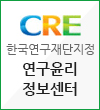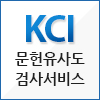Abstract: Although benefits and opportunities of corporate social responsibility (CSR) are contingent on the level of stakeholders' awareness and their attitudes towards firms’ CSR, very little is known about which CSR activities are more impactful than others in the context of social networking sites (SNS). Thus, this study differentiates CSR activities into two dimensions that are subject to business operations and examines the impact of CSR (i.e., operations-related and non-operations-related) on consumer engagement according to the supply-and-demand perceptions. This study reveals that while stakeholders insignificantly engage with oper- ations-related CSR, non-operations-related CSR positively affects consumer engagement during a sample period of 13-year (2008-2020). Younger generations in which higher levels of interpersonal involvements are em- bedded in SNS are more selective to business social engagement than previous generations. This study further explores the moderating role of pandemics on the CSR-consumer engagement relationship to examine whether the contingent factor of epidemic outbreaks strengthens or weakens the supply-and-demand relationship. This study finds that pandemics do not moderate the relationship between non-operations-related CSR and consumer engagement, both positively and negatively. However, stakeholders are more likely to engage with oper- ations-related responsibility during pandemics than non-pandemics, confirming a moderating role of epidemic outbreaks. This study fills the literature gap by providing empirical evidence of optimal resource allocation of CSR investments in the US lodging industry during the pandemic and non-pandemic periods.
Keywords: Corporate social responsibility, Consumer engagement, Pandemic, Social media, Hotel











